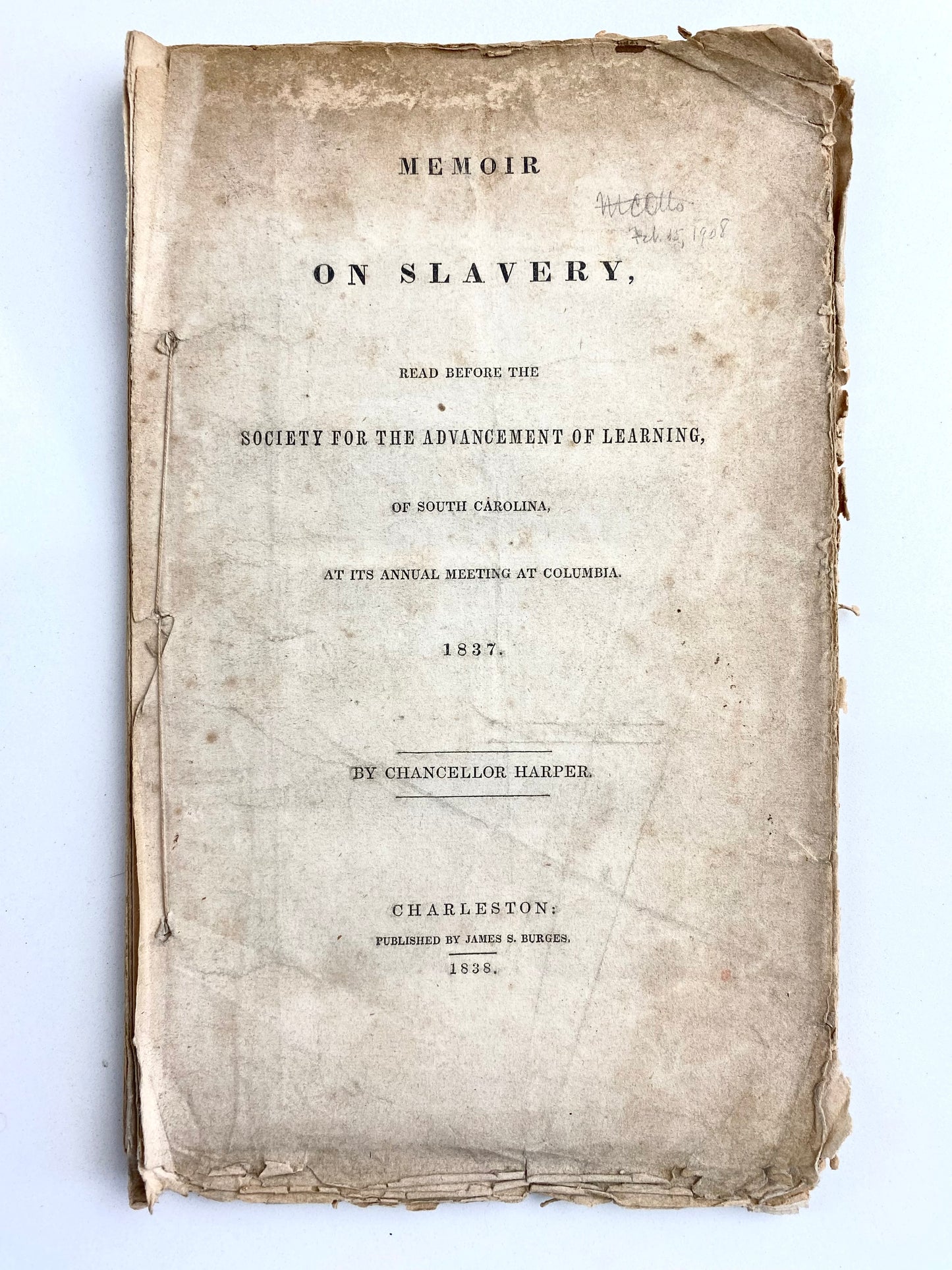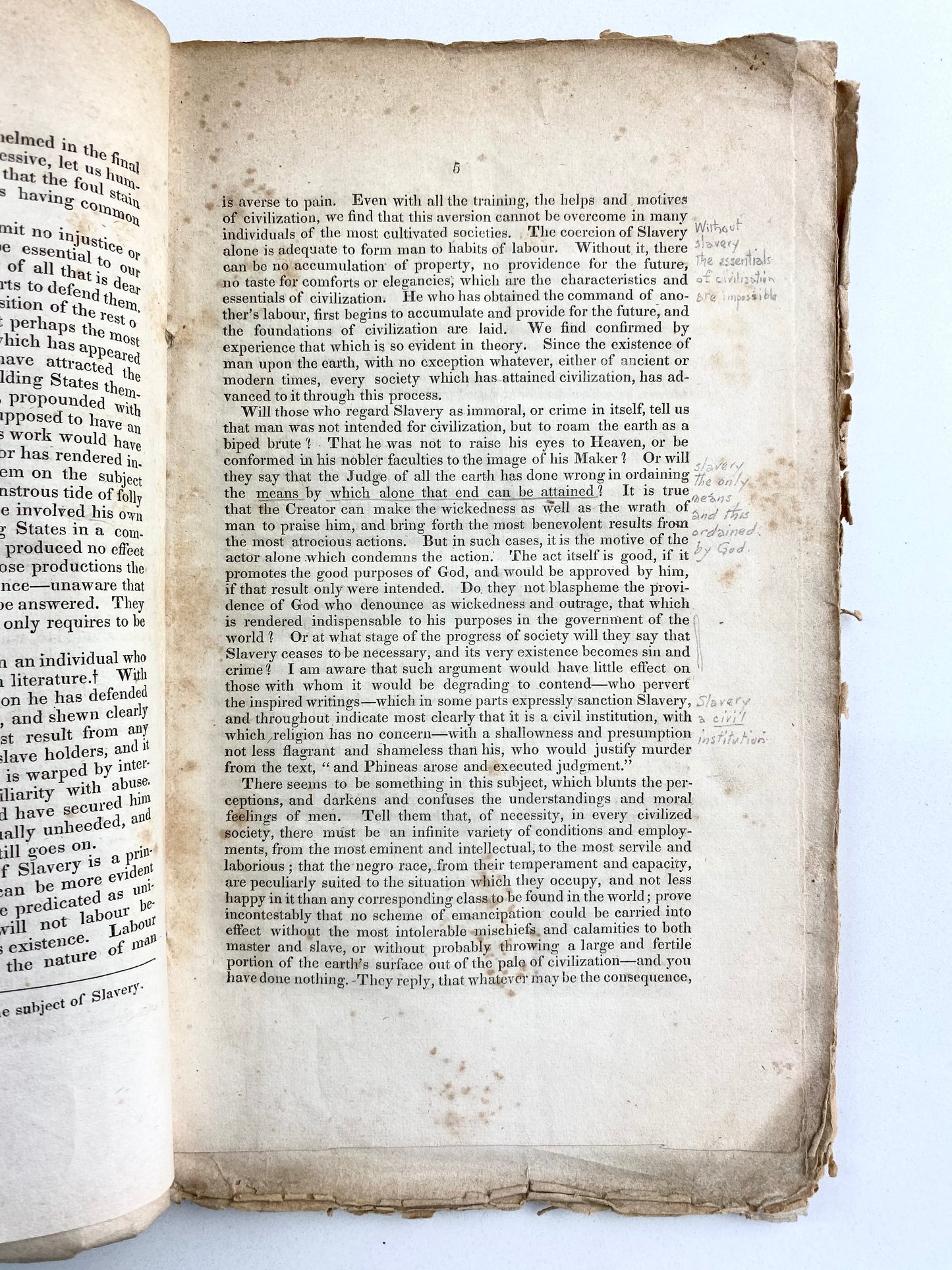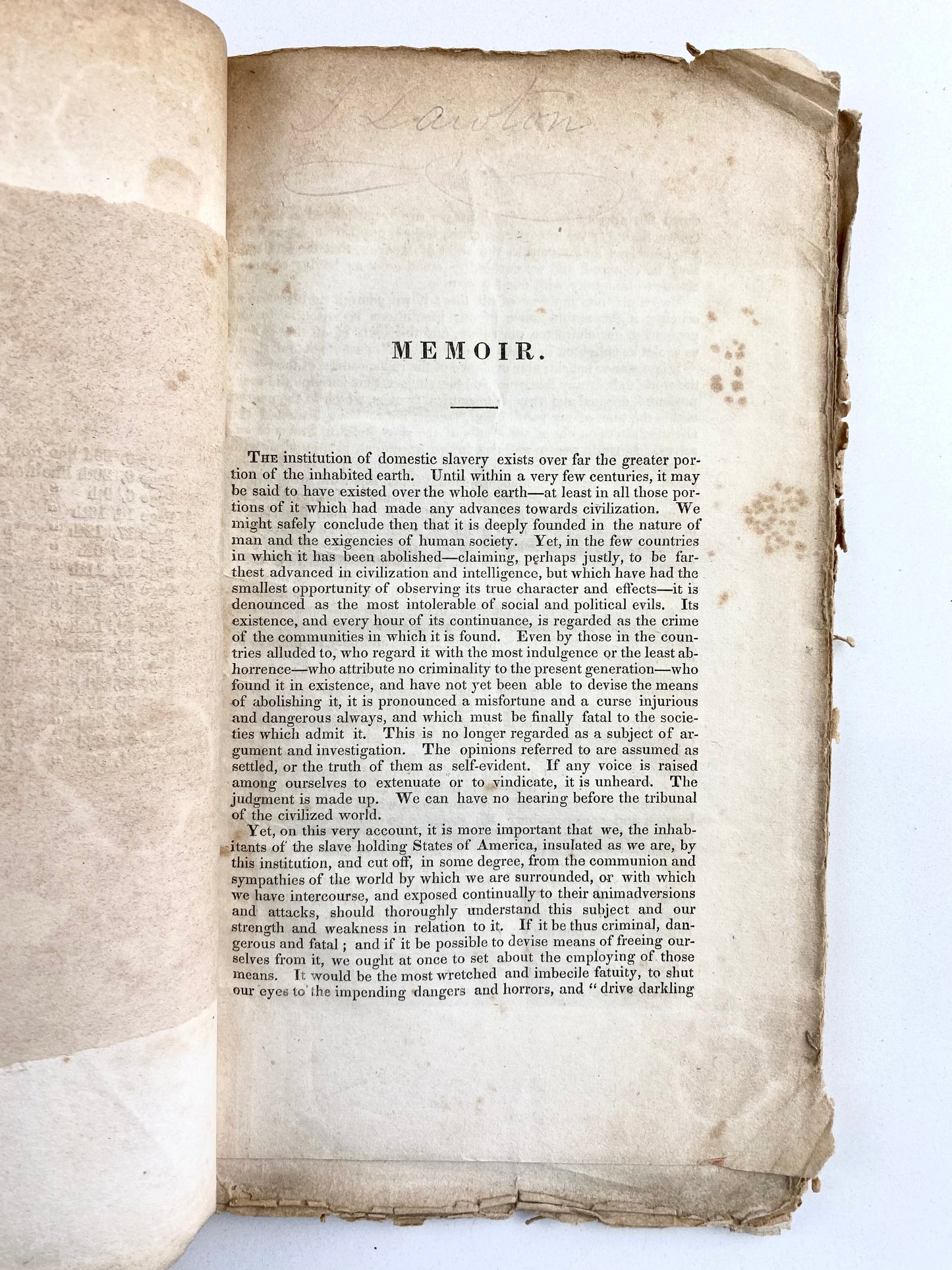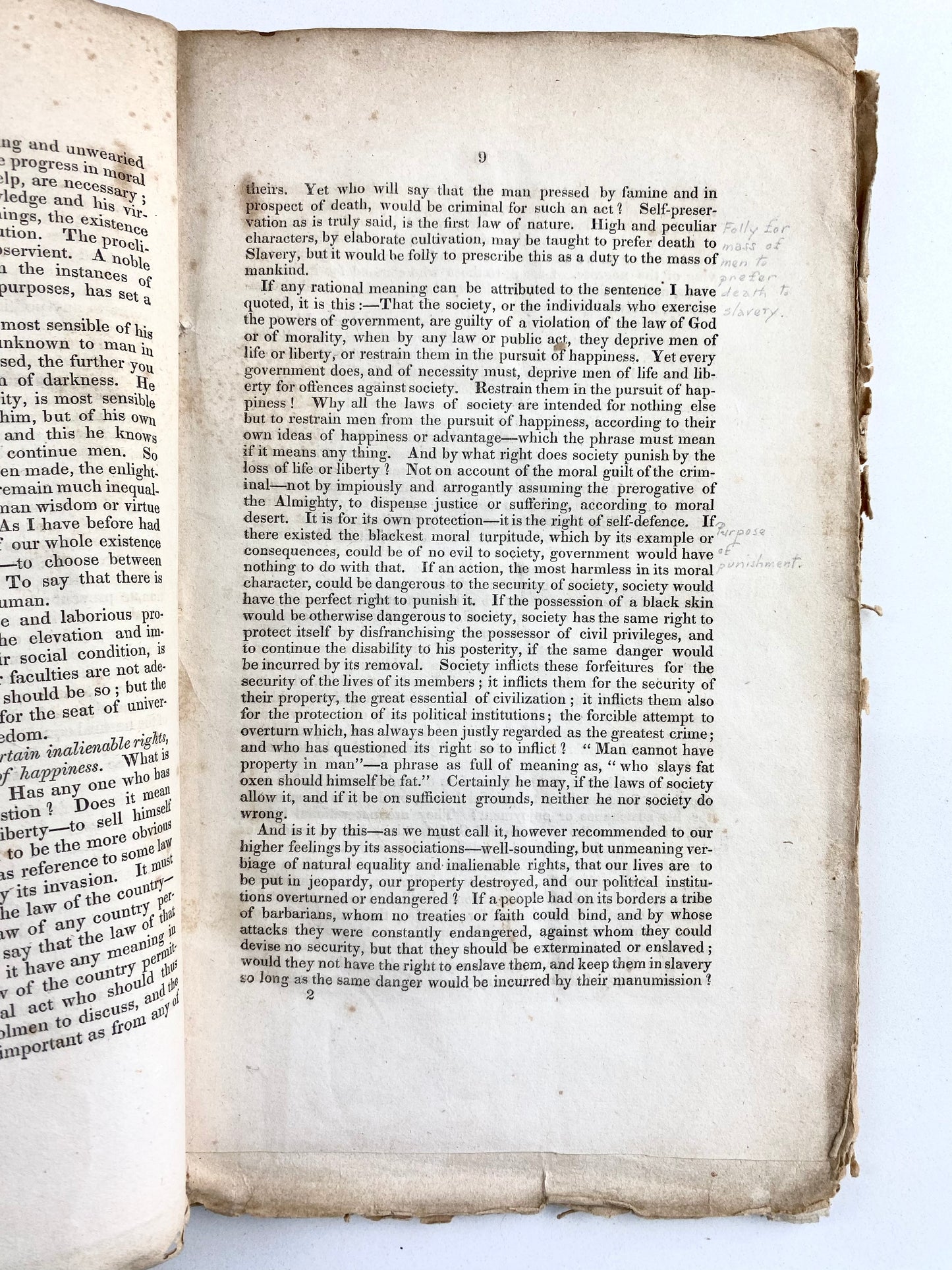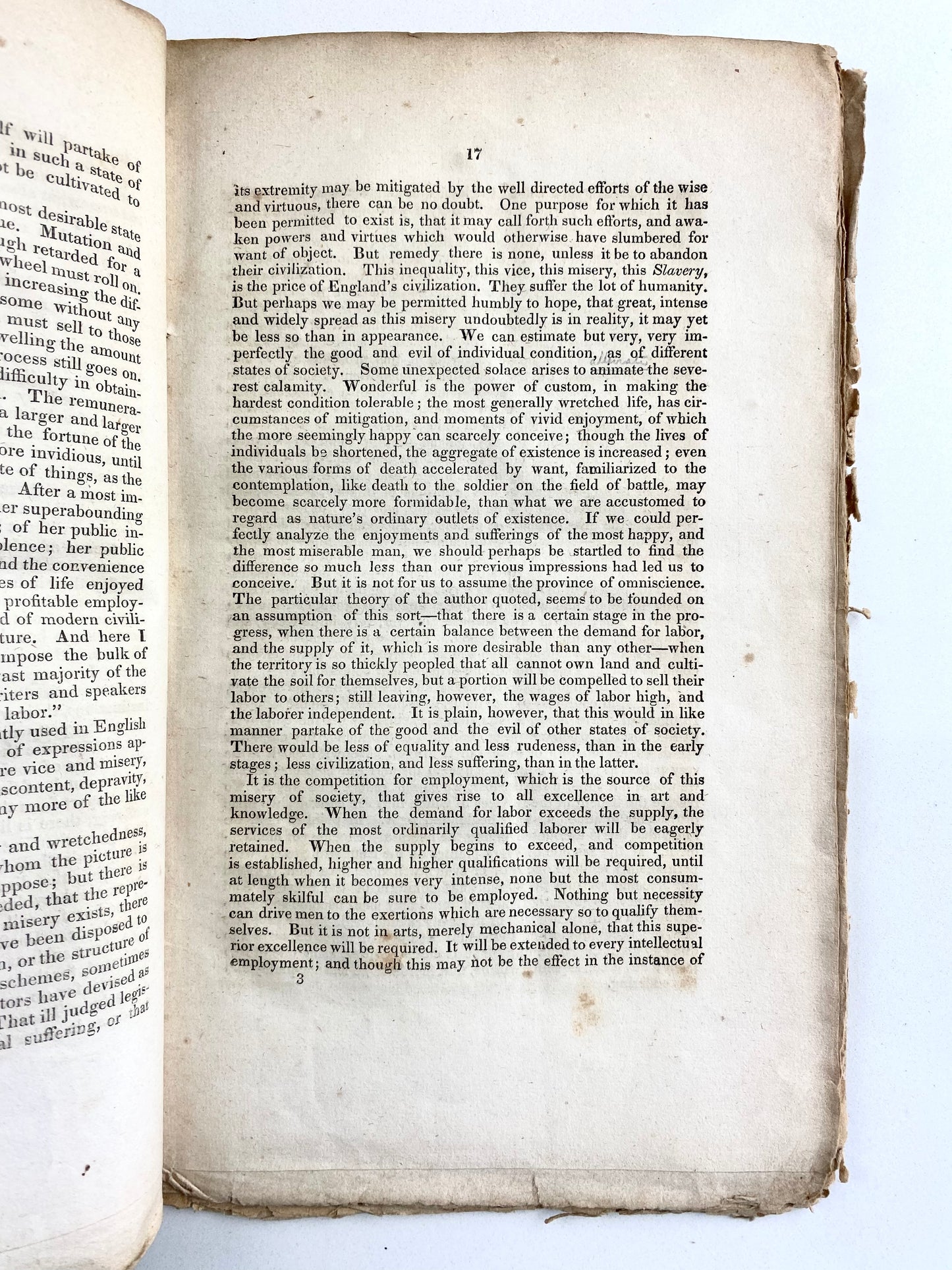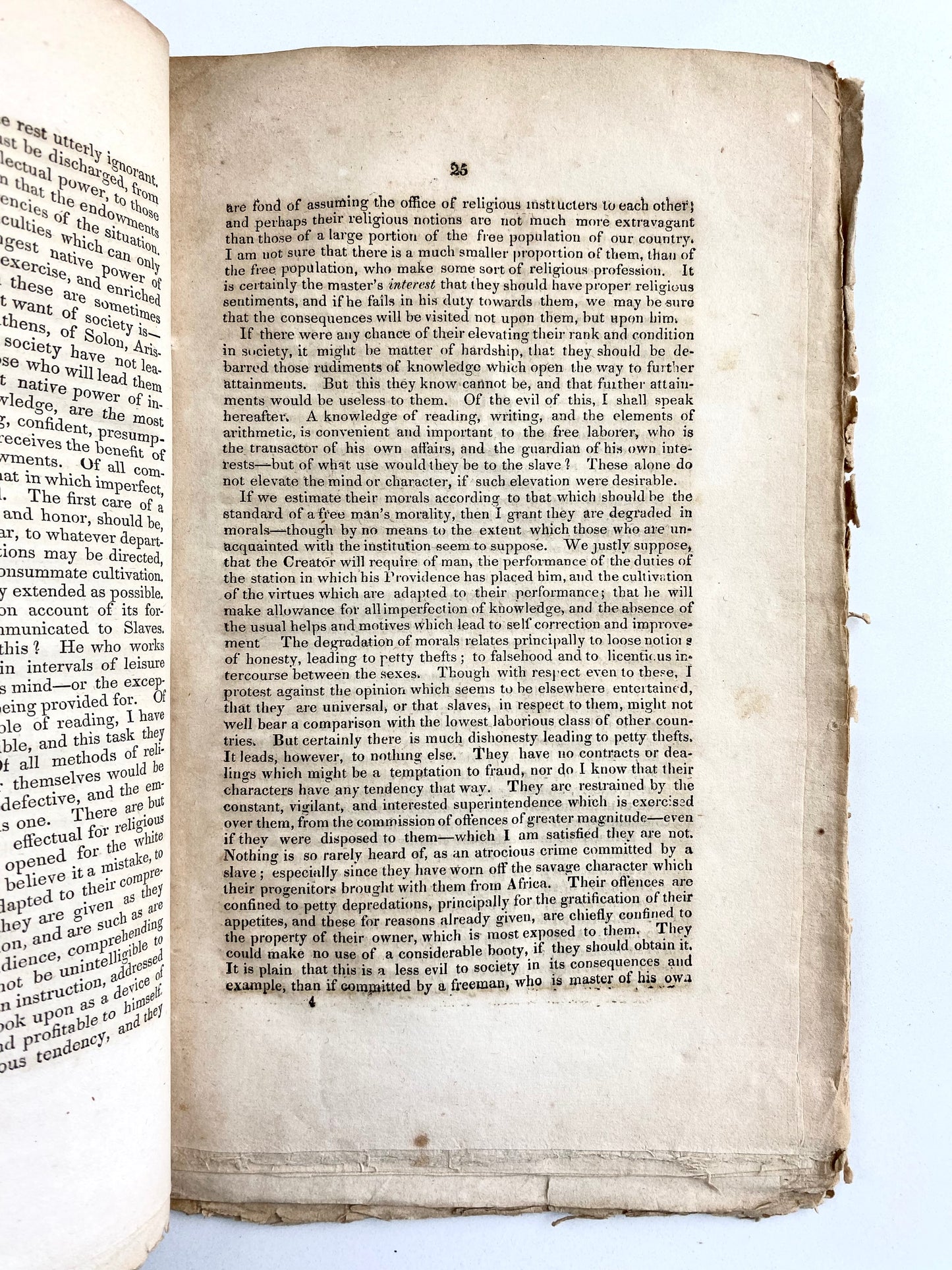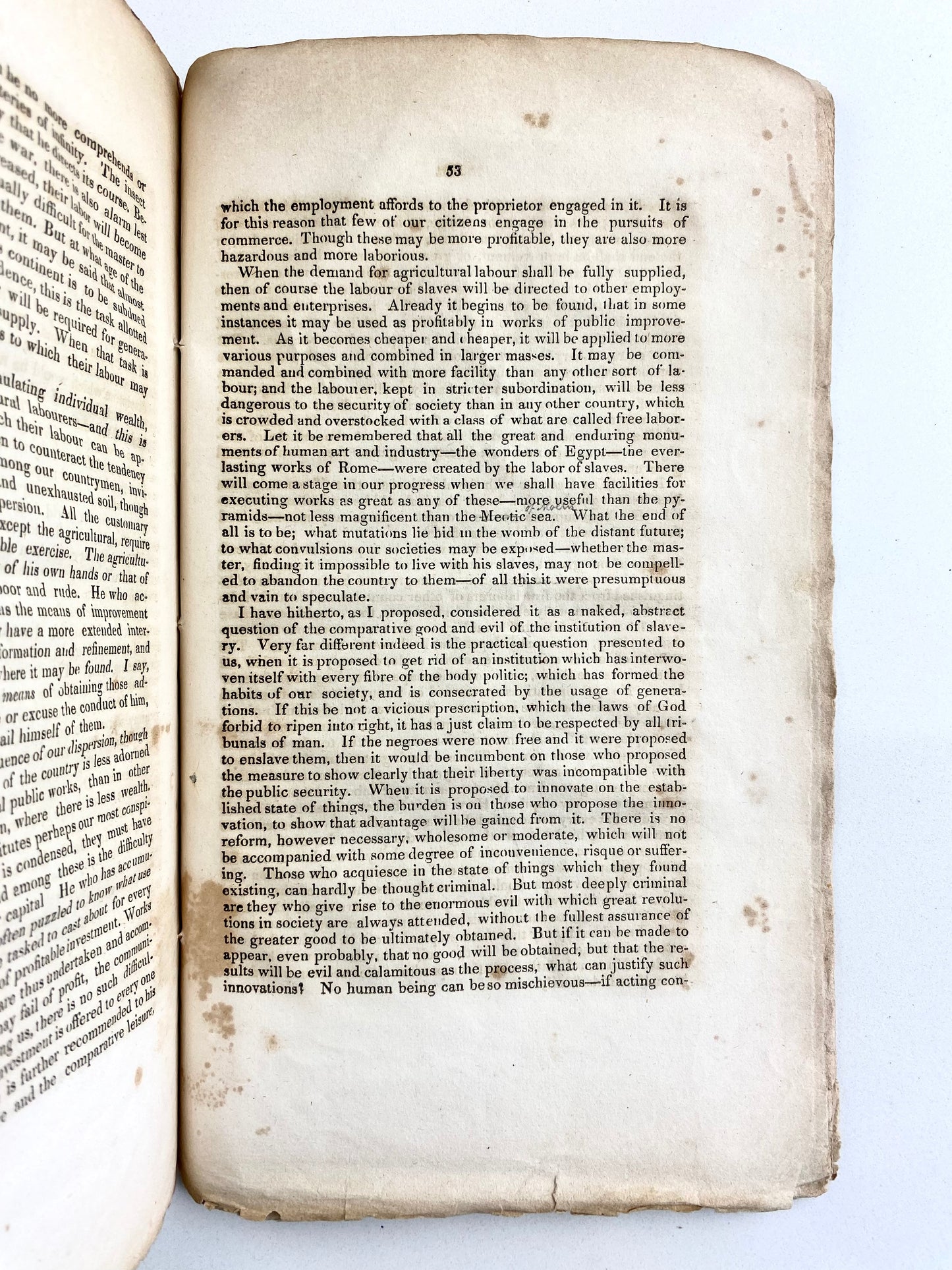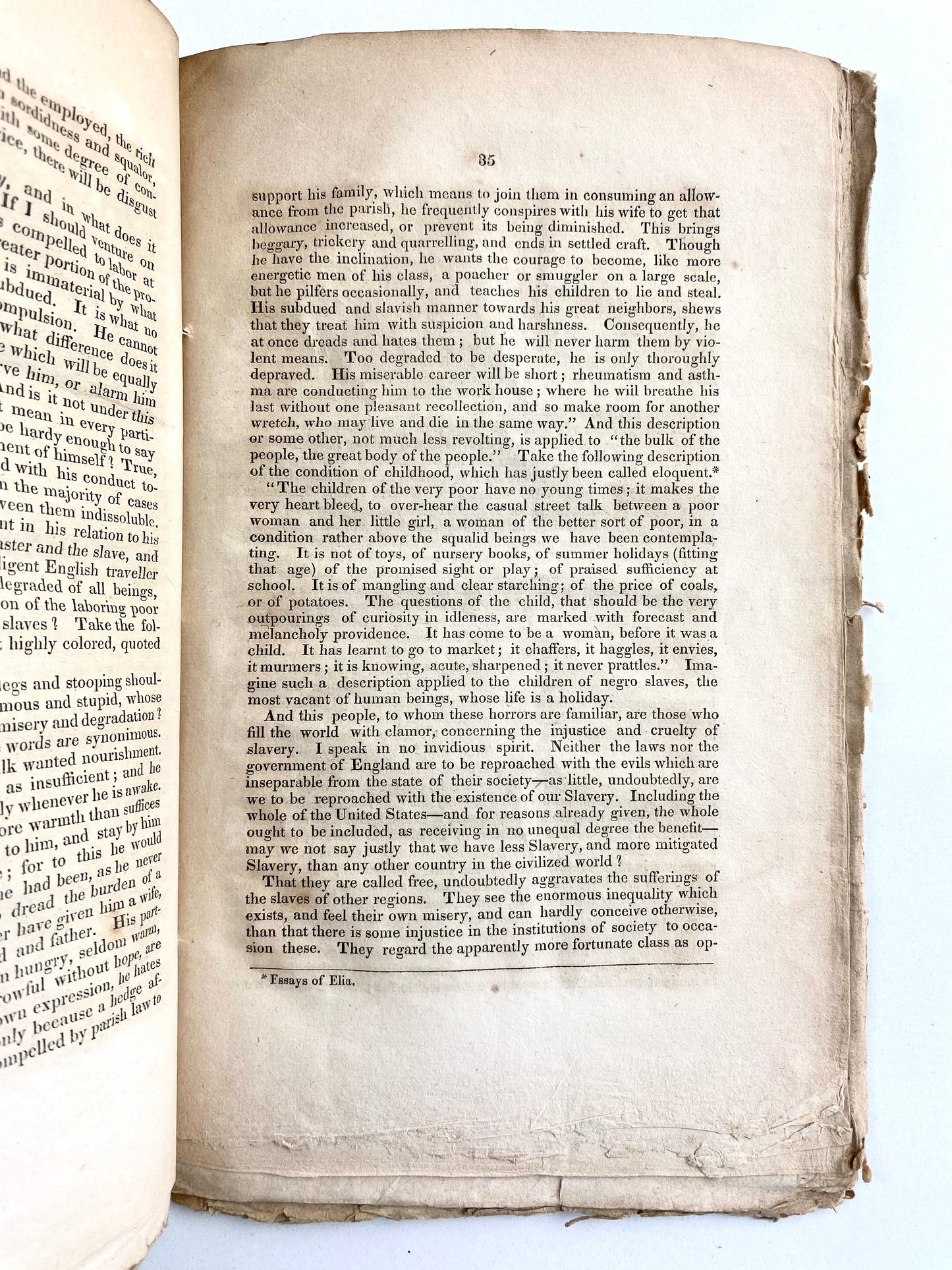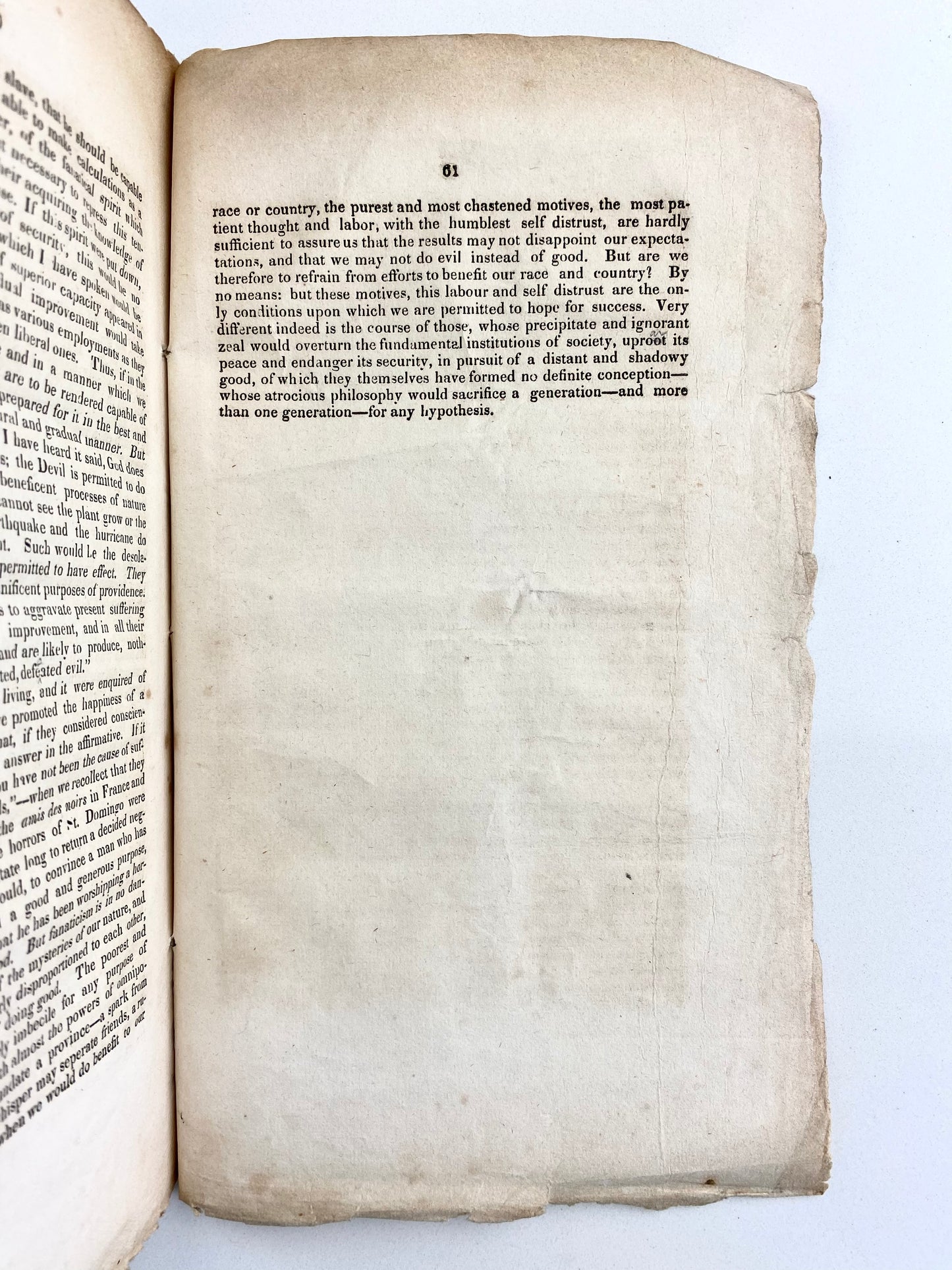Specs Fine Books
1838 SOUTH CAROLINA - SLAVERY. Exceptionally Scarce Pro-Slavery Tract by Confederate Senator.
1838 SOUTH CAROLINA - SLAVERY. Exceptionally Scarce Pro-Slavery Tract by Confederate Senator.
Couldn't load pickup availability
A very scarce and historically pivotal work by one of the most radical of the pro-slavery thinkers of the early 19th century. Exceptionally scarce in the trade.
William Joseph Harper [1790 –1847] was one of the most significant voices in the pro-slavery, soon to be Confederacy of the 1830’s. Already a prominent lawyer in Columbia, Governor Richard Manning appointed Harper to fill the U.S. Senate seat that had become vacant with the death of John Gaillard. Harper served from March 28 until December 7, 1826, when the South Carolina legislature elected William Smith. Then served again from 1835 until his death in 1847.
Throughout the 1820s and 1830s, Harper was an active defender of South Carolina, free trade, and state rights. He prominently supported the nullification movement led by John C. Calhoun, and argued in a series of court opinions that states in the Union were sovereign political entities, each possessing the right to reject federal laws it found unconstitutional.
Harper is most infamously remembered as an early and important representative of pro-slavery thought. His Memoir on Slavery, first given as a lecture in 1838, and reprinted in the Southern Literary Journal, classed Harper as a leading proponent of the notion that slavery was not merely a necessary evil, but a positive social good.
Harper advanced several philosophical, racial, and economic arguments on behalf of slavery, but his central idea was that "slavery anticipates the benefits of civilization, and retards the evils of civilization." The slaveholding South, he contended, had achieved a social balance that allowed for steady economic and technological progress, while avoiding the chaos of urban and industrial society. Harper's assessment of other nations around the world confirmed this point of view: non-slaveholding civilizations in northern climates, such as Great Britain, were riven by inequality, political radicalism, and other dangers. Non-slaveholding civilizations in more southerly areas, meanwhile, such as Spain, Italy, and Mexico, were rapidly slipping into "degeneracy and barbarism." Only the slaveholding Southern United States, Brazil and Cuba could be seen making "favorable progress."
Harper’s positive emphasis on the social and economic benefits of the institution of slavery separate him from the weaker apologists for slavery in earlier decades. Harper's idea of slavery as a social good put him on par with Thomas Roderick Dew, James Henry Hammond, and other significant figures in the history of pro-slavery thought.
". . . the Creator did not intend that every individual human being should be highly cultivated morally and intellectually. It is better that a part should be fully and highly cultivated, and the rest utterly ignorant."
“. . . Slavery has done more to elevate a degraded race in the scale of humanity; to tame the savage; to civilize the barbarous; to soften the ferocious; to enlighten the ignorant, and to spread the blessings of Christianity among the heathen, than all the missionaries that philanthropy and religion have ever sent forth."
Harper [Chancellor] William. Memoir on Slavery. Read before the Society for the Advancement of Learning, of South Carolina. At its Annual Meeting in Columbia, 1837. Charleston. James S. Burges. 1838. First Edition. 61pp.
Good + in original side-stitched wraps, handled, corners turned, and some rubbed minor losses at extremities of rough-cut page edges. A few probably mid-20th century pencil notes reflecting a critical or scholarly reading of the text.
Share
